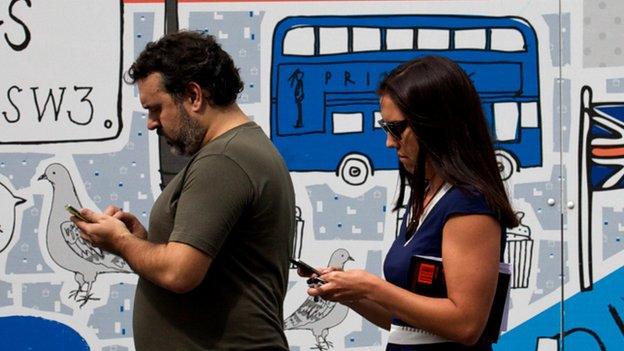Vodafone fails on 3G mobile coverage
- Published

Mobile coverage is a huge bugbear for users
Mobile firm Vodafone has been rapped by regulator Ofcom for failure to meet its coverage obligations.
When 3G mobile spectrum licences were awarded in 2000, they included an obligation to roll services out to 80% of the population. In 2010 this was increased to 90%.
EE, Three and O2 are deemed to have successfully met this obligation.
But Vodafone falls short by 1.4%. It has promised to rectify this by the end of 2013.
It will involve rolling out 3G to more mobile masts than it had originally intended.
"Ofcom is fully aware of our plans to ensure compliance by the end of this year," the firm said in a statement.
"Our network investment stands at more than £900m this year alone and we remain on track to deliver indoor coverage across 2G, 3G and 4G to 98% of the population by 2015, two years ahead of the regulator's deadline," it added.
Ofcom will monitor its progress and reassess its 3G coverage in January 2014.
Improved services
Mobile coverage is a huge bugbear for consumers and one that Ofcom is determined to prioritise.
Recently it produced a report suggesting that mobile coverage on Britain's roads was poor. Next year it will report on the mobile coverage on the country's railways.
Matthew Howett, an analyst with research firm Ovum thinks that it will be little hardship for Vodafone to comply.
"I don't see it being very much of an issue for them to catch up and quite probably it will happen before the end of the year,"
Customers can take heart from the current 4G rollouts, he said.
"4G coverage will be better and much more likely to be complied with given the spectrum at 800MHz travels further distances and penetrates buildings well."
- Published24 October 2013
- Published17 October 2013
- Published2 October 2013